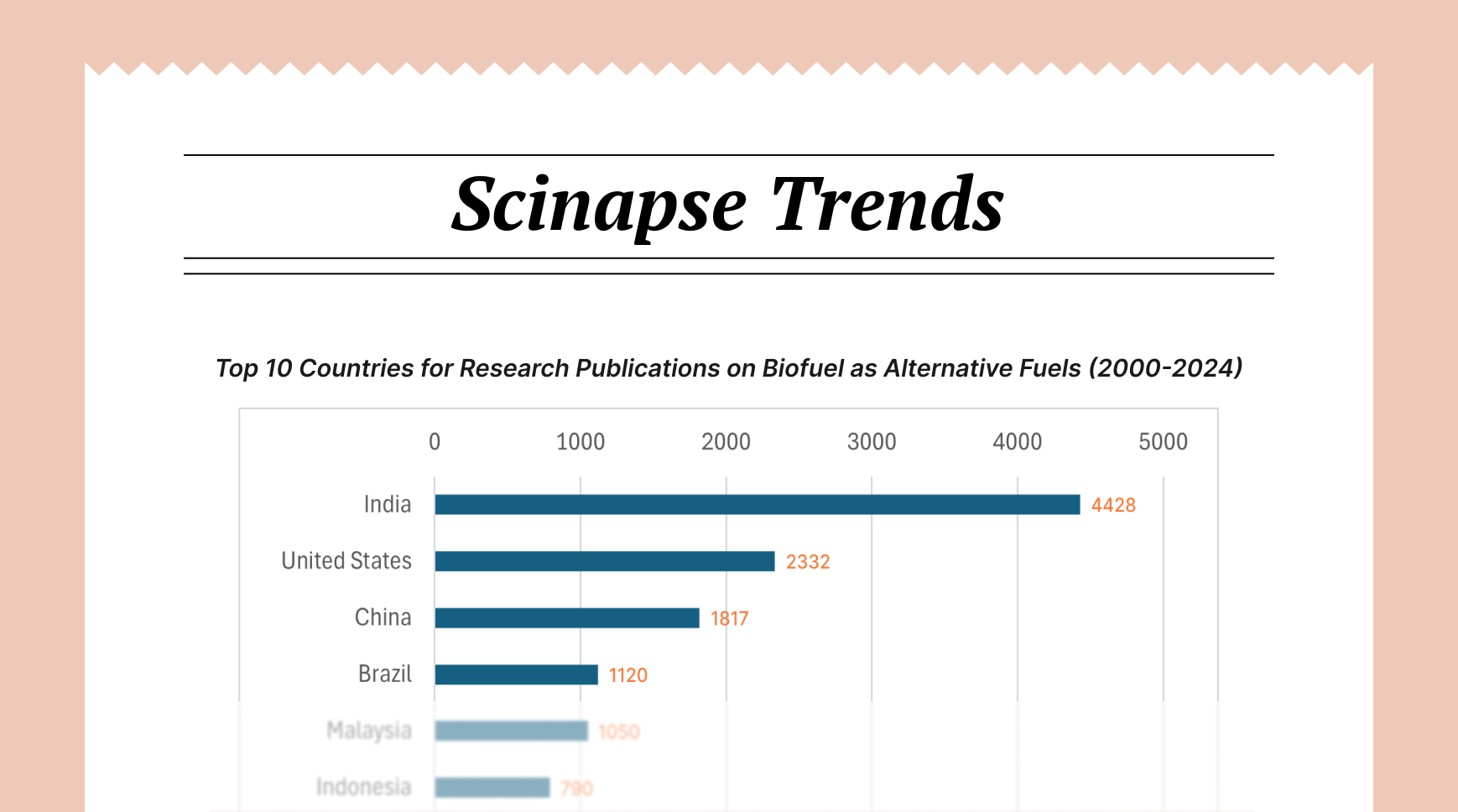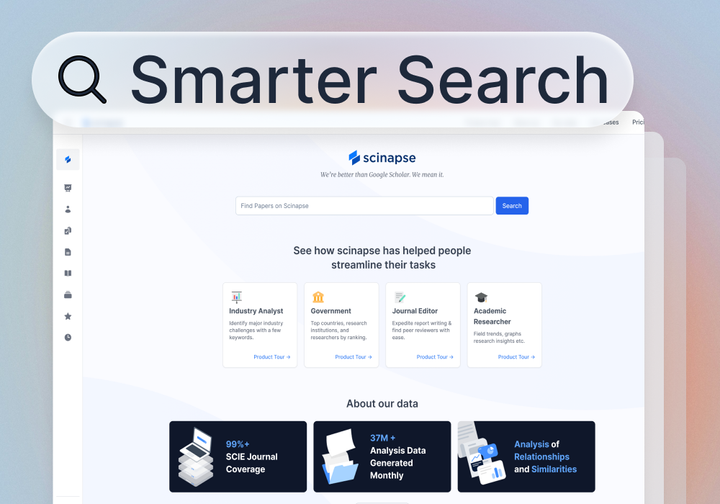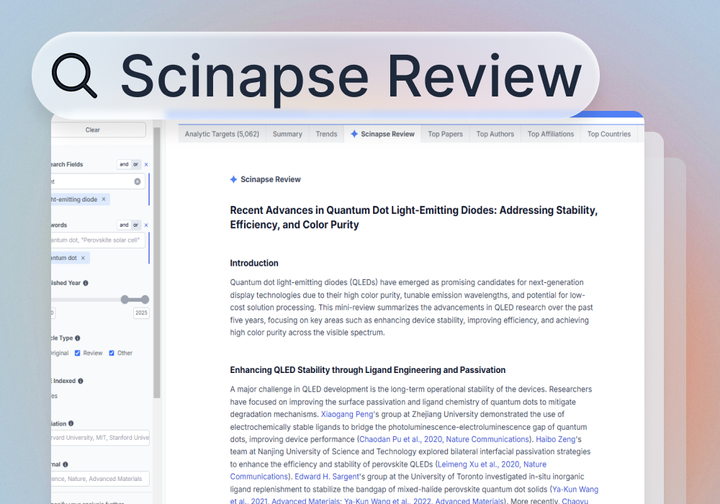AI-Driven Research Collaboration: Utilizing Best AI Technology to Find Experts in Your Field

Research collaboration is at the forefront of scientific innovation, driving breakthroughs across fields and accelerating the speed of discovery. As research topics become more complicated, the demand for varied skills and resources has never been greater. Artificial intelligence (AI) is emerging as a strong tool in this context, transforming how researchers locate possible partners and institutions. This technological development tackles a basic academic challenge: effectively connecting experts across huge networks of information and specialty.
What Is the Importance of Research Collaboration?
From Watson and Crick's discovery of DNA structure to the recent development of COVID-19 vaccines, research collaboration has been critical in expediting breakthroughs. In today's interconnected world, the importance of collaborative research for innovation and knowledge production cannot be undermined.
However, finding expert research collaborators poses considerable obstacles. Researchers must go through massive amounts of published research, comprehend complicated institutional relationships, and evaluate possible partners' skill and compatibility. This is where AI comes into play, providing advanced tools like Scinapse to help you find and connect with potential collaborators.
Using AI-Driven Approaches to Find Experts for Research Collaboration
AI technologies are transforming how scientists discover potential research collaborators. To make this process simple and reliable, Scinapse.io’s Expert Finder feature analyzes millions of research papers, extracting key information about authors, institutions, and research topics. This algorithm then maps these data points into complex research networks, revealing patterns and connections that might not be apparent to human observers.
Don't let finding the right research collaborator slow down your scientific progress – start your search on Scinapse today and propel your research forward with precision-matched research collaborations.
Example of Finding Experts for Research Collaboration Using AI
Scinapse uses advanced AI algorithms to provide a range of features that can significantly aid in identifying experts in your research field.
It offers multidimensional filters such as h-index, affiliation, whether the researcher is active or not, country, publication count, personal impact factor, citation count, first and last published year. This comprehensive and targeted searchability with advanced filters help refine your process of finding the most appropriate research collaborator for successful research.

Utilizing Scinapse's Search Functionality
Scinapse's search capabilities go beyond simple keyword matching. Its AI-powered search engine understands the context and semantics of research papers, allowing for more nuanced and relevant results.
When interpreting search results, it's important to understand Scinapse's relevance scores. These AI-generated scores take into account not just keyword matches, but also the paper's impact, recency, and relevance to your research interests.
Detailed Author Information Makes Research Collaboration Quick and Effective
Scinapse provides detailed author profiles, and the parameters shown in the above profiles significantly enhance the process of identifying suitable experts for research collaboration:
- Research focus areas:
- Tagged topics (e.g., "Electrolyte", "Lithography") quickly reveal each researcher's specialties.
- "Recently focused" tags highlight current interests, ensuring relevance.
2. Quantitative metrics:
- Publication count indicates productivity (1,445 and 1,538 respectively).
- Citation numbers (299k and 224k) reflect the impact of their work.
- h-index (247 and 218) shows consistent high-quality output.
- Personal IF (20.05 and 5.05) suggests the caliber of journals they publish in.
- Domain h-index (136 and 123) indicates field-specific influence.
- Institutional affiliations provide context on resources and academic environments.
These parameters streamline expert finding for research collaboration by:
- Enabling rapid filtering based on research areas and current focuses.
- Providing objective measures of expertise, impact, and consistency.
- Allowing for quick comparisons between potential collaborators.
- Offering insights into specialization and sustained performance.
This comprehensive data allows researchers to:
- Quickly match expertise with project requirements.
- Assess potential collaborators' standing in their fields.
- Identify experts with complementary skills for interdisciplinary work.
- Gauge the likelihood of fruitful collaboration based on productivity and impact.
By presenting this information concisely, the process of finding and evaluating potential research partners becomes more efficient, potentially accelerating the formation of productive collaborations and advancing scientific progress.
The integration of AI into the process of finding research collaborators represents a significant leap forward in how academic partnerships are formed. Tools like Scinapse make it easier than ever to identify experts in your field, understand institutional relationships, and uncover potential collaboration opportunities.
written by Uttkarsha B
Never re-search again.
Scinapse is made by researchers for researchers.
Join the next generation of research at ⏯️ https://scinapse.io/
Pluto Labs
Pluto Labs helps researchers focus on their research by improving several inefficiencies in the academic research process. We offer data-driven insights from academic papers, allowing users to easily obtain review-level results for their desired range of papers.
https://pluto.im/





Comments ()